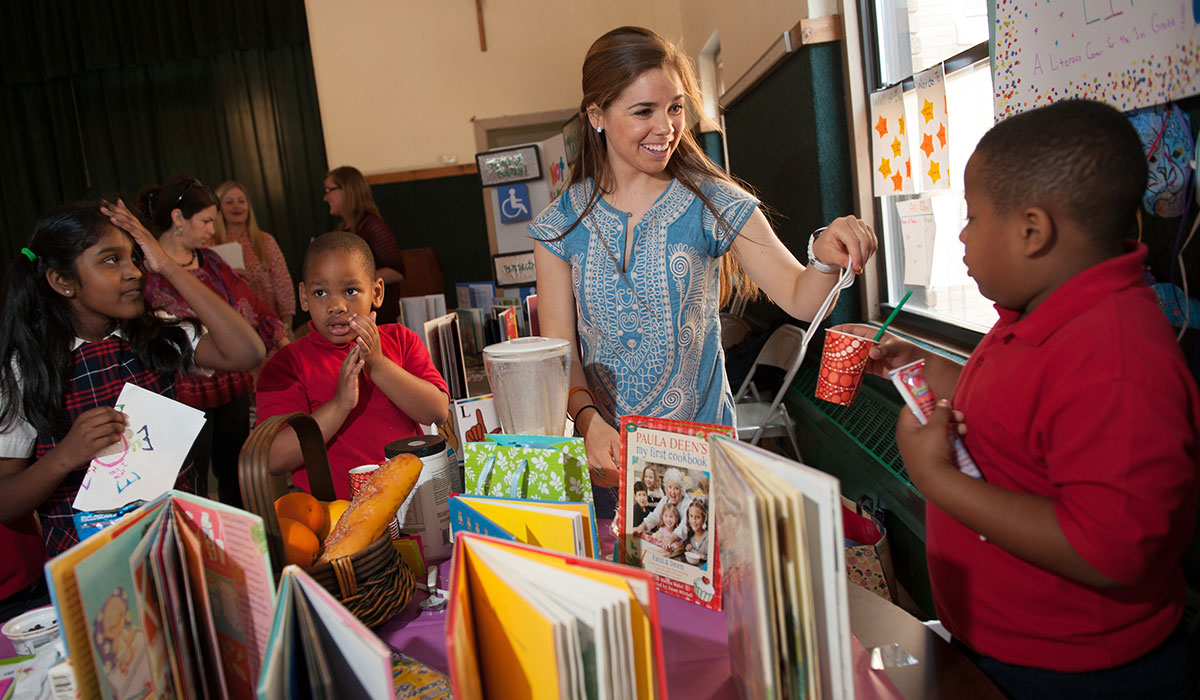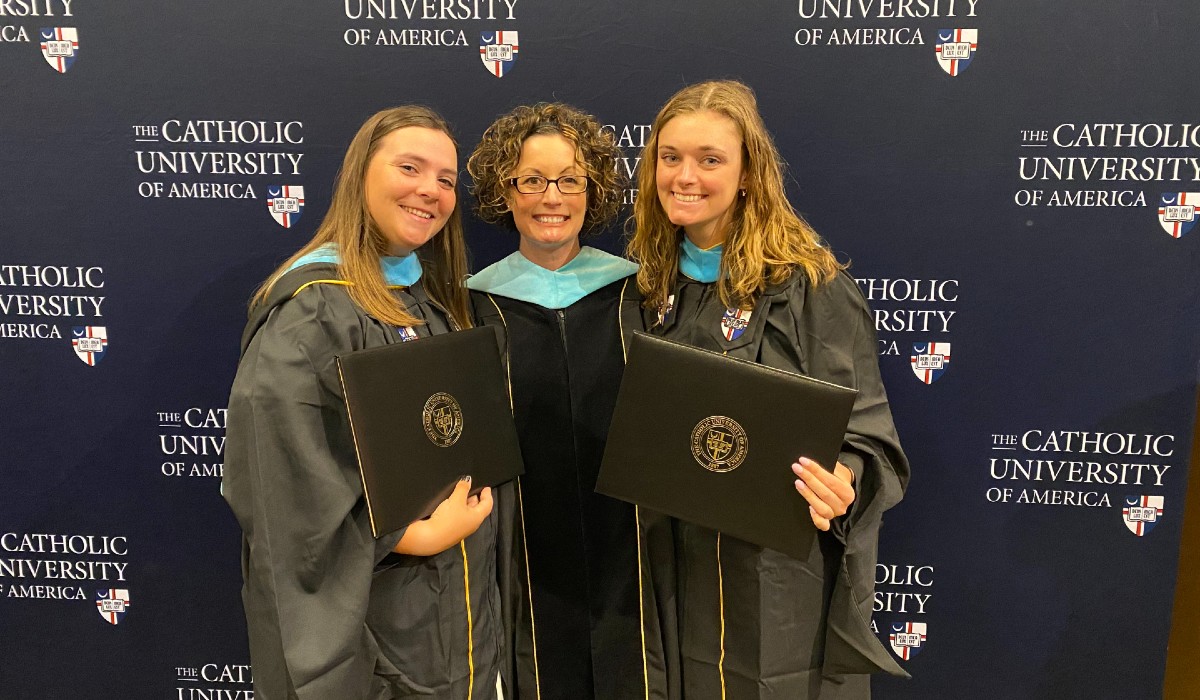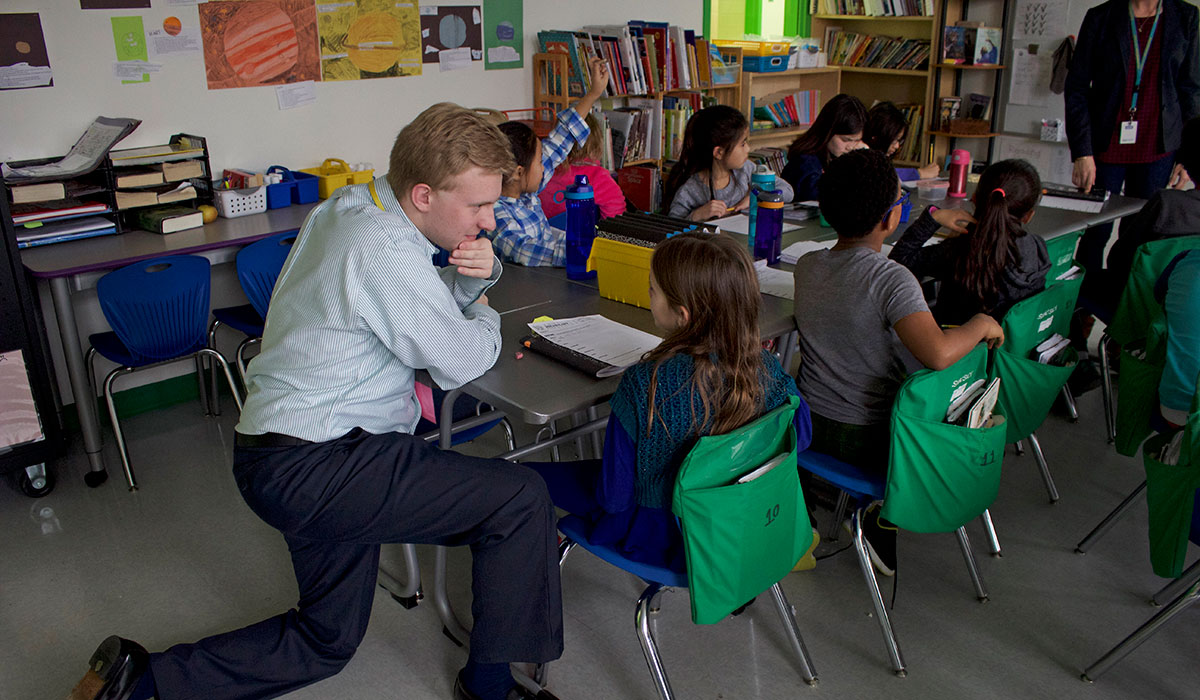The Department of Education at Catholic University has a rich tradition of preparing teachers and educators to serve in Catholic, private, and public schools. The curriculum, classroom field placements, and other program opportunities provide candidates with the knowledge and practical application to develop and thrive as classroom teachers and educational professionals.
Admission is now open for Fall 2025!
(These are initial licensure programs for teacher education. Candidates are eligible to apply for a Standard Teaching Credential with OSSE upon successful program completion.)
The Catholic University of America programs were reviewed by the Council for the Accreditation of Educator Preparation Programs (CAEP) in December 2021 and the EPP is accredited through Spring of 2029. Our programs are also recognized by the Office of the State Superintendent of Education (OSSE) for Washington D.C.

-

-
Undergraduate Programs
Those interested in a career as a classroom teacher should explore our programs in Elementary Education (grade 1-6) or Secondary Education (grades 7-12). For those interested in professional fields related to education, please consider our Education Studies program which is designed for those who do not want to pursue classroom teaching, but are interested in working related fields.
Learn More -

Graduate Programs
Admission to the Secondary Education MA programs is now open for Fall 2025 cohorts in English, Social Studies, and Mathematics. This is an initial teacher licensure program intended for candidates who already hold a baccalaureate (BA or BS) degree in their content area.
Learn More
Catholic University EPP Equal Opportunity Statement: Vision and Mission
The Educator Preparation Provider (EPP) of The Catholic University of America strives to attract, support, and retain a wide range of candidates, faculty, and staff through our commitment to Catholic social justice, our academically vibrant community, and our support of all individuals in achieving their full potential. We pursue excellence in teaching, research, service, outreach, and open opportunity for all as our foundational goals.
We aim to create a welcoming, hate free, anti-racist, and encompassing community for people from every background; value the contributions of all students, candidates, faculty, and staff; and respect the pronounced ways their experience, identity, status, culture, ethnicity, gender, language, background, abilities, expectations, views, and opinions impact all members of our community.
Our mission is to prepare professionals to overcome the challenges in educational settings by implementing research- and evidenced-based solutions informed by theory, research, and technology; foster a culture of reflective practice and inquiry within a diverse and global community of students, faculty, and staff; provide leadership in the improvement of all students' education locally, nationally, and globally; and be committed to open opportunity for all by practicing mutual respect for qualities and experiences that are different from their own and provide and adapt instruction to meet the needs of each student. By seeing each student as a unique and valuable individual, our candidates are expected to carry out the key elements of their own faith in a way that validates the worthiness of each student while acting as a role model of personal integrity. For the same reason, we also aspire to prepare future educators who understand the role of technology in the modern classroom, both as tools for students to master and as an educational tool to enrich all students' learning opportunities.

